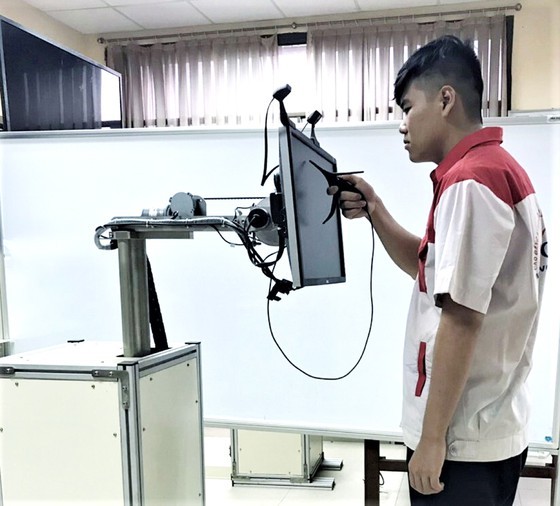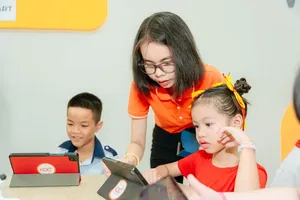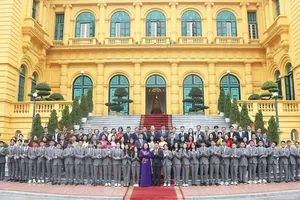
Statistics from the Office for Vocational Education (under the National Council for Education and Human Resource Development in the Education and Training Ministry) on nearly 1,000 educational managers, over 2,000 teachers and 16,000 students in Vietnam reveal that during the social distance time due to Covid-19, almost 70 percent of teachers and 84 percent of learners have taken part in distance learning, fully fluent in using digital tools for this purpose.
Among these trainers, nearly 88 percent and 71 percent have applied ICT in their theoretical and practical lessons, respectively. The most popular solutions used are presentation software and websites. This means vocational schools, especially technical ones, have successfully used basic digital learning tools and simulation programs in their online teaching.
Rector of Vien Dong College Tran Thanh Hai informed that the Covid-19 pandemic poses challenges but also offers great chances for vocational schools to implement IT in their training programs. Since the end of 2020, his institute has invested in virtual practice tools from Germany to answer 90 percent of the needs of students in the nursing faculty for distance learning.
Similarly, Vice Rector of HCMC Technical College No.2 Bui Van Hung shared that his institute has finished training all academic staff regarding ‘digital pedagogy’, digital transformation and management with the help of experts from Germany, Finland, Australia. Now the college aims at establishing a smart educational institute (with a full digital institution, modern teaching technologies, blended learning, interactive website) to serve its learners.
Experts in the field said that there must be a consistent and synchronous strategy for digital transformation in each vocational school, based on current infrastructure, academic staff capacity, and training programs.
However, Deputy Director General of the Vocational Education and Training Directorate Pham Vu Quoc Binh commented that the proportion of knowledge and skills related to digital technology like IoT, AI, Big Data is not high enough. Technical majors such as automotive engineering, refrigeration, electronics – electricity, mechanical engineering, have allocated a significant time in their curriculum for computer programming, they have no clear plan to include digital competence into their core subject group.
In addition, the investment in specialized software for each major is not at all sufficient, and thus the use of quite outdated versions, not to mention some cracked ones.
Agreeing with the above idea, Associated Prof. Dr. Do Van Dung said that vocational schools at present mostly focus on digital learning, not large-sized files to store data nor digital media to link to social networks, nor even digital campus to optimize the teaching process and easily apply into the reality. Worse, the existing educational facilities of several vocational schools cannot meet the demands of digital training since libraries, workshops still use the traditional operation model.
























